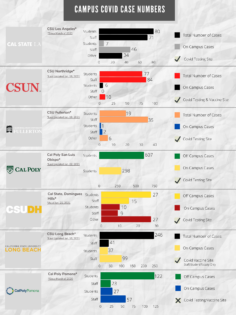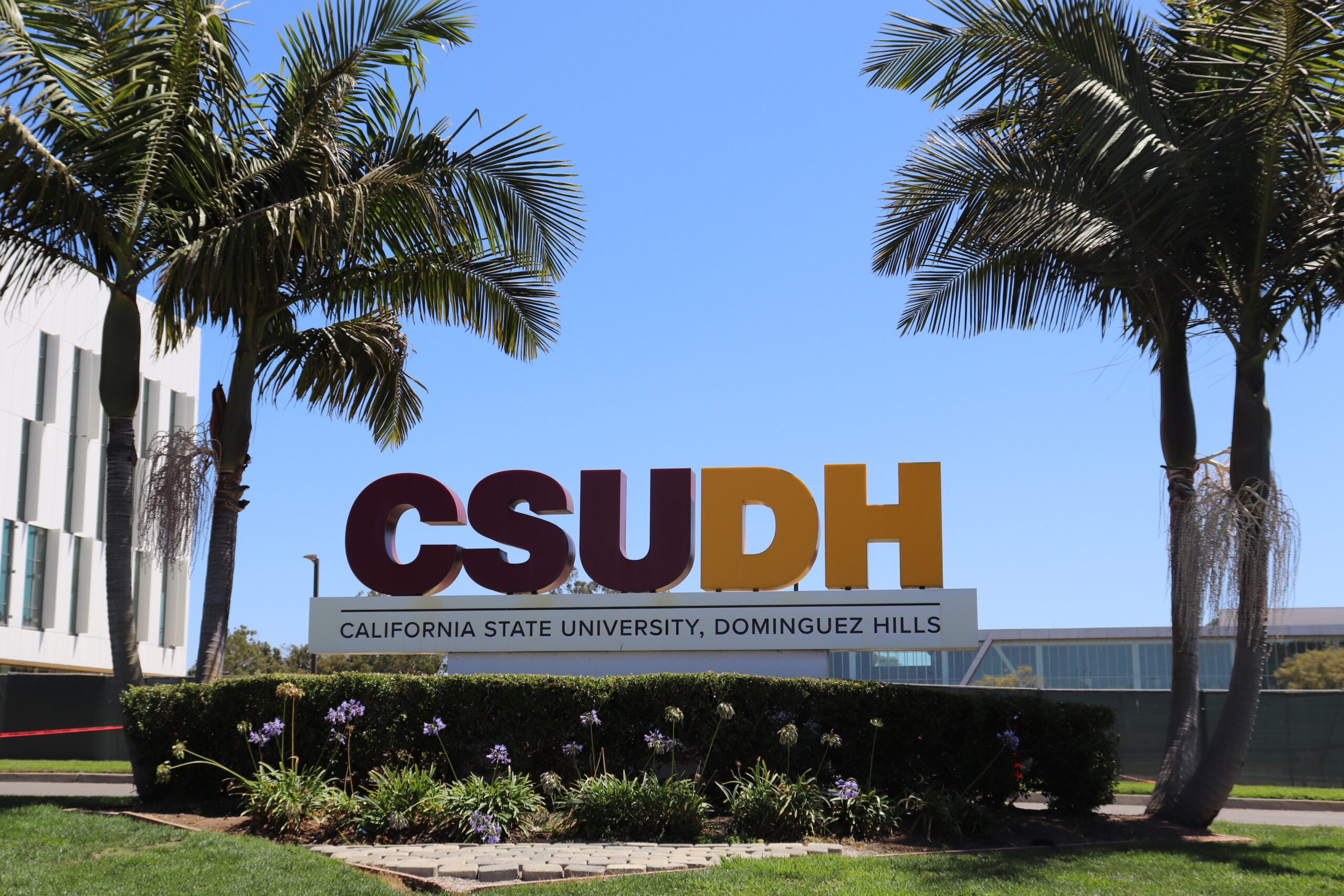Photo by Iracema Navarro.
By Brenda Verano, News Editor and Carina Noyola, Life Style Editor & Multimedia Coordinator
The state of California is home to the nation’s largest four-year public university system, but it is also home of the country’s current COVID-19 epicenter of the coronavirus. With 36,360 deaths as of Friday, the California State University System is at a constant battle against the deadly virus that is affecting their students and communities as days go by.
As CBSLA first reported, CSU Chancellor Joseph Castro sent a letter out to each of the campus presidents of the 23 universities saying the coronavirus surge in California is “deeply concerning.” In the letter, Castro asked that presidents consider delaying face-to-face instruction or returning to campus to as late as possible. But even as the CSUs have, for the majority, maintained a distance-learning agenda, many of the students have been infected and tested positive after the holidays.
Among the CSUs with the highest COVID cases is California Polytechnic State University, San Luis Obispo at number two, with a total of 905 off-campus and on-campus cases, and an extra 19 new cases added since their last update. The other CUS’s with the highest COVID-19 cases are San Diego State,in first place and Chico State, taking third place with 296 confirmed cases. This is in comparison to CSUDH’s 88 total cases since Spring 2020
Many reports compare the Cal Poly’s COVID-19 outbreak with the fact that it is also in the top three CSU party schools, making it no coincidence at all, as the university currently has a total of 114 on-campus residential students currently in quarantine.
But to prevent the spread, Cal Poly along with other universities like CSULA, CSULB, CSUDH, CSUN, SAC State and CSUF, all have testing sites campus open to students and some are open to communities as well.
Some of the universities like CSUN and CSULB are taking it a step further and becoming sites for the COVID-19 vaccine. CSUN started administering COVID-19 vaccines to eligible Los Angeles County residents using two of their parking lots.
To ensure the continued safety of the rest of their students CSU’s are also implementing ways to report suspected or confirmed COVID-19 cases.
The universities have developed systematic methods with names like “Daily Health Self-screening,” “COVID-19 Self-Reporting form,” “COVID Case Reporting Form,”or CSUDH’s own “COVID-19 Screening Tool,” who all have one purpose, to keep the university community safe and up-to-date.
Below is a visual graph of seven CSU’s located throughout different regions of the state, and some neighboring schools with CSUDH.

If you are a CSUDH students living in University Housing and/or taking face-to-face classes during spring 2021,mandatory tests are now required and available under the newly implemented “COVID-19 surveillance testing program”
The test will be FREE, every Wednesday to eligible asymptomatic students, faculty, and staff.
For more information on CSUDH’s COVID-19 response and protocol click here.

